Consolidation is a fantastic way to deal with debt issues as it relieves the pressure of paying multiple, high interest bills while also slowly improving your finances. You can do it in many ways, though it will take some time and financial commitment.
Consolidation is one of the best methods to take when you find yourself in a tricky situation where your credit score is on the line. It will help stem the financial bleeding and begin your path toward repairing your financial standing. Of course, you should consider several things before taking on any debt consolidation strategy.
Should I Consolidate?
The first thing you must verify is if consolidation is the best option for you. It does not make sense to do it when you cannot tackle payments. You want to do it because you are lowering costs through better interest rates or more flexibility with the loan terms. When the option for consolidation does not provide relief, it does not make sense to move forward with it.
Many people choose to consolidate when they reach a point where they have too many debt payments to manage. For example, when you are handling multiple credit card accounts; you may want to consolidate credit card debt and get a lower rate for it. It is a way to restructure your finances and help make monitoring your debt easier because they are now under one payment system.
Consolidation is only possible when you have reached a point where you have a stable enough income to handle the updated terms. Many organizations and companies will not agree to consolidate if you cannot prove you have a consistent income. You must fix your income sources first before the option for lightening your debt load can be possible.
Recommended: Debt Management Program
A debt management program rolls all debts into a monthly payment with reduced interest. These are generally available for everyone, and you can do it through a nonprofit credit counseling organization. The plan will give you fixed payment terms, making it easier to pay off the debt consistently. It also cuts your interest rates significantly, with many creditors lowering their rates less than half their original interest rates.
However, the debt management plan takes longer to fulfill — an average of three to five years. The positive effects to your credit score may be slow, but the benefit will be over the long-term. FICO notes that working with a credit counseling agency does not hurt your credit score. A debt management plan is a way to reduce the size of your payments and consolidate debt. You should also be sure that you can pay for everything within five years to be effective.
To learn more about debt management, speak with a nonprofit credit counseling organization. They will be more than happy to assist you and address your concerns.
Credit Card Refinancing (Balance Transfer)
A balance transfer places all your credit card debts into another card. You might want to take this option when the company offers significant introductory benefits. For example, they may have a 0% interest rate period or allow you to pay off the debt for a year without gaining interest. However, this option is only available for those with high credit scores.
The goal here is to be able to pay for everything within the promotional period. Some cards will have anywhere from one to two years of zero interest. There will also be a balance transfer fee of around three to five percent of the amount of debt moved to the new card. For a $5,000 transfer, that equates to a $150 to $250 fee.
Missing a payment during the introductory period means the debt will start charging interest. The interest will be much higher than your previous debt, but it may not be a choice if you cannot pay the debt within one to two years.
Debt Consolidation Loan
A bank or credit union may offer a debt consolidation loan with more flexible terms than your other debt. After approving your loan, they will send a payoff to your other lenders, so you end up with just one open debt account. From there, you will have to pay for them within the agreed time. Before taking on a loan, however, you must consider several things:
- Your credit score
- The loan’s repayment terms
- Origination fees
Origination fees may be a percentage of the new loan’s initial balance. Your credit score will strongly influence things like the interest rate. Although your monthly payment will be lower, a longer loan term will mean that you will pay much more than if you had a shorter repayment term.
Other than that, the process will go like any other loan. Underwriters will check metrics to decide your risk and offer a loan plan that matches it. Those with better credit histories and scores will stand a chance to get better terms.
Home Equity Loans (HELs and HELOCs)
A home equity loan is a second mortgage. You turn your home into collateral. For a home equity loan (HEL), the lender will give you a lump sum to pay off your other debts. For a home equity line of credit (HELOC), the lender will give you access to an amount you can borrow at any time, up to a certain percentage of your home’s equity. Both are added debts you are taking on. Your house lowers the lender’s risk, so you can usually get better interest rates than credit cards. HELs will usually have a fixed interest rate while HELOCs typically have variable interest rates.
While these options can be a way to pay your other debts, you are increasing your mortgage payment and putting your home at risk. You must also pay more than the home’s value due to interest. Not making payments as agreed will lead you to default on your mortgage, possibly resulting in foreclosure. It’s a major risk, so consider things carefully before going down this path.
Putting It All Together
Most of the other options for debt consolidation will have you take on a new loan. They may have benefits like lower interest or zero interest periods. However, they’re usually new loans that will lead you to pay more over their lifetime. The only choice that won’t put you into any additional debt is the debt management plan, which is why we recommend it.
For the most part, you’ll only be paying fees. The agency will handle dealing with the other lenders on your behalf. It may be a slower process, but it’s a sure way to become debt free in as little as three years.
About the Author
Rick has been in the financial and credit counseling industry for over 20 years. He is currently a HUD certified housing counselor and has well over a decade of experience as a certified credit counselor. Rick writes regularly on matters relating to consumer finances and is a contributor for many publications on these topics.











